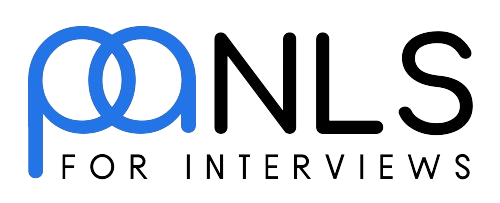Interview Panel Meaning: What Is a Panel Interview and Why It Matters in Smart Hiring

In the modern hiring landscape, collaboration is king. Hiring decisions no longer rest on one person’s judgment. Instead, organizations now rely on structured, multi-perspective evaluations—commonly referred to as interview panels. But what is the interview panel meaning, and why is it reshaping the way companies hire?
At its core, an interview panel is a group of interviewers who collectively assess a candidate’s suitability for a role. This model brings together professionals from different parts of an organization—HR, team leads, technical experts, and even potential peers—to ensure a more balanced, comprehensive view of each applicant.
Whether you’re a hiring manager refining your interview process or a candidate preparing for your next big opportunity, understanding the interview panel meaning is crucial. In this guide, we’ll break down exactly what a panel interview is, why it’s used, and how tools like Panls.ai are optimizing the process for today’s top employers.
Interview Panel Meaning Explained
The interview panel meaning refers to a method of interviewing in which multiple people—usually from different departments or functions—interview a single candidate at the same time. Each member of the panel contributes unique insights, helping the company make a more informed hiring decision.
This approach is commonly used in industries like technology, government, education, consulting, healthcare, and finance. These fields often require candidates to interact with multiple stakeholders, making the panel interview a useful simulation of real-world working dynamics.
The key reason companies prefer panels over solo interviews is objectivity. With several viewpoints, hiring teams can better evaluate soft skills, technical expertise, and overall team fit. When we talk about interview panel meaning, it’s about creating a structured, collaborative, and more accurate way to select talent.
Panel interviews also complement other method of recruitment like lateral hiring or sources of recruitment, depending on organizational goals.
What Is a Panel Interview? A Clear Breakdown
If you’re wondering what is a panel interview, here’s a detailed explanation: a panel interview is a format where a candidate is questioned by multiple people at the same time, usually in a structured and coordinated session.
Each interviewer typically focuses on a specific area. One might evaluate soft skills, another might focus on technical abilities, and another might gauge leadership potential or cultural fit. This type of interview can take place in person or virtually.
Types of panel interviews include:
- Technical panel interviews that test core knowledge and role-specific skills.
- Managerial panel interviews that assess leadership, decision-making, and strategic thinking.
- Cross-functional panel interviews that bring together people from different departments to evaluate how well a candidate might collaborate across teams.
Understanding what a panel interview is will help both recruiters and job seekers prepare more effectively for this comprehensive evaluation process.
Understanding panel formats is crucial when designing your interview schedule and selecting appropriate interview rubrics for consistent evaluation.
Why Employers Use Panel Interviews
Employers adopt the panel interview format for several key reasons, all of which tie back to smarter, fairer hiring outcomes. The interview panel meaning in this context expands beyond logistics—it represents a shift toward collective decision-making.
Advantages of using interview panels:
- Efficiency: Instead of scheduling multiple one-on-one interviews, the company can evaluate a candidate in one coordinated session.
- Diversity of Input: Different team members offer unique perspectives, reducing the risk of bias.
- Candidate Observation Under Pressure: Multiple interviewers can see how the candidate performs in a high-stakes environment.
- Team Buy-In: Everyone involved in the panel gets a say, leading to stronger onboarding and alignment if the candidate is hired.
Insights from platforms like Coursera and The Forage support this model as a best practice, particularly for mid-to-senior roles and complex hiring decisions. The interview panel meaning is directly tied to the goal of achieving high-quality, data-backed hiring decisions.
Interview Panel vs One-on-One Interviews
When comparing the interview panel meaning to traditional one-on-one interviews, the differences are substantial and impactful.
Interview Panel:
- Involves multiple interviewers in a single session.
- Provides collective evaluation and faster decision-making.
- Encourages diverse feedback from different areas of expertise.
- Creates a higher-pressure environment for the candidate.
- Often used for complex, high-impact roles.
One-on-One Interview:
- Conducted by one interviewer at a time.
- May lead to more informal or casual discussion.
- Allows deeper rapport with the interviewer but increases bias risk.
- Takes longer when multiple rounds are required.
- Better suited for entry-level roles or preliminary screening.
Understanding the interview panel meaning helps teams choose the right format based on the role, urgency, and complexity of hiring.
How to Prepare for a Panel Interview (For Candidates)
Once you understand the interview panel meaning, preparation becomes easier and more strategic. Facing multiple interviewers at once can be intimidating, but the right approach can help you make a powerful impression.
Preparation strategies:
- Research Panel Members: Identify who will be present. Look them up on LinkedIn or the company website to understand their roles and interests.
- Use the STAR Method: Keep your answers clear and structured by focusing on Situation, Task, Action, and Result.
- Organize Notes Effectively: Assign numbers to panelists (e.g., Panelist 1 is HR, Panelist 2 is the Hiring Manager) so you can direct responses efficiently.
- Rotate Eye Contact: Be sure to engage all panelists, not just one.
- Practice Multi-Person Conversations: Get used to addressing different perspectives in one response.
- Customize Your Questions: Prepare a few thoughtful questions for each person based on their function.
Understanding the interview panel meaning gives candidates an edge by helping them decode what interviewers are really evaluating.
How to Structure an Effective Interview Panel (For Recruiters)
From the employer’s side, understanding the interview panel meaning is key to creating a productive, fair, and insightful evaluation process. A well-structured panel leads to better hires and a more efficient process.
How to structure your interview panel:
- Select Diverse Roles: Include HR, direct managers, peers, and technical experts.
- Assign Interview Focus Areas: Make sure each panelist covers specific competencies—e.g., communication, technical skill, leadership.
- Align in Advance: Host a pre-interview meeting to agree on what success looks like and avoid redundant questions.
- Maintain Consistency: Use the same scoring rubric or evaluation template for all candidates.
- Debrief Collectively: After the interview, gather feedback quickly while impressions are fresh.
The real interview panel meaning lies in collaboration—not just during the interview but also in preparation and post-interview analysis.
Common Questions in a Panel Interview
Understanding the interview panel meaning includes knowing what types of questions to expect—both as a candidate and as an interviewer.
Typical panel interview questions include:
- Behavioral Questions:
- “Tell us about a time when you led a team under pressure.”
- “Describe a situation where you had to mediate conflict at work.”
- “Tell us about a time when you led a team under pressure.”
- Situational or Hypothetical Questions:
- “What would you do if your project deadline was suddenly moved up by a week?”
- “How would you handle contradictory instructions from two different managers?”
- “What would you do if your project deadline was suddenly moved up by a week?”
- Technical or Role-Specific Prompts:
- “Explain how you would improve the current onboarding process.”
- “Walk us through a technical solution you implemented in your last role.”
- “Explain how you would improve the current onboarding process.”
Good panel coordination ensures that each interviewer focuses on a different aspect of the role or candidate competency.
Post-Interview Best Practices
After the interview ends, what happens next is just as important.
For Candidates:
- Send personalized thank-you notes to each panelist.
- Reflect on which answers landed well and which didn’t.
- Follow up if you haven’t heard back in the expected timeframe.
For Employers:
- Collect individual feedback from all panelists promptly.
- Host a structured debrief meeting to reach consensus.
- Ensure communication with candidates is timely and respectful.
When understood and executed correctly, the interview panel meaning leads to better post-interview alignment and stronger hiring outcomes.
Virtual vs In-Person Panel Interviews
The interview panel meaning extends to format choices as well. Whether conducted online or face-to-face, panel interviews must be equally structured and inclusive.
Virtual Panel Interviews:
- Enable broader participation across locations and time zones.
- Require good technical setup (camera, microphone, internet).
- May challenge natural communication flow if not well-managed.
In-Person Panel Interviews:
- Offer more natural conversation and body language cues.
- Require more scheduling coordination and travel logistics.
- Often preferred for final interview rounds or executive roles.
Regardless of format, the goal is the same: a unified, multi-voice assessment that reflects the core interview panel meaning—collaborative, fair, and efficient evaluation.
Why Interview Panels Improve Hiring Outcomes
Companies that understand the interview panel meaning and implement this method strategically often see significant benefits:
- Better hiring decisions due to cross-functional input.
- Reduced hiring time by consolidating multiple interviews.
- Lower risk of bias because decisions are shared.
- Improved candidate experience when interviews are structured and respectful.
- Enhanced team alignment on new hires from day one.
The result? More confident hires and stronger teams.
Use Technology to Build Effective Panels: Spotlight on Panls.ai
Panls.ai is a modern platform built to solve one of the biggest challenges in hiring: managing expert-driven interview panels efficiently.
Key Features:
- On-demand access to professional interviewers across roles.
- Automated scheduling that adapts to multiple calendars.
- Lean, integrated workflows that sync with your existing ATS.
How Panls.ai Reinvents the Interview Panel:
- Saves recruiters hours of coordination time.
- Ensures technical interviews are conducted by qualified experts.
- Delivers consistent, data-backed evaluations.
With Panls.ai, the interview panel meaning is no longer about complexity—it becomes a competitive advantage.
Final Thoughts
The modern hiring landscape demands fairness, speed, and collaboration—and that’s exactly what panel interviews deliver. Understanding the interview panel meaning empowers both candidates and employers to engage more effectively in the process.
By combining structure, diversity, and insight, panel interviews elevate hiring from guesswork to strategic decision-making. Whether you’re building your next team or preparing for your dream job, embracing the panel format is a step toward smarter outcomes.
Ready to modernize your interview process? Try Panls.ai — the smart way to build expert interview panels, reduce hiring delays, and improve decision quality with Interview-as-a-Service.
Frequently Asked Questions
An interview panel refers to a group of interviewers who jointly evaluate a candidate during one session. It’s used to gather diverse insights and make better hiring decisions.
A panel interview involves multiple people interviewing one candidate at the same time. Each panelist focuses on different areas like skills, culture fit, and experience.
Most panel interviews consist of 2 to 5 interviewers, typically including HR, the hiring manager, and peers or technical experts.
Panel interviews reduce bias, increase efficiency, and provide a well-rounded evaluation of the candidate from multiple perspectives.
They can be more challenging due to the pressure of answering questions from multiple people, but preparation makes a big difference.
Research panelists, practice structured answers, engage all interviewers during the conversation, and prepare thoughtful questions for each.
Ensure diversity, assign clear roles, align on evaluation criteria in advance, and debrief collectively post-interview.
Yes. Many companies now conduct virtual panel interviews using video conferencing tools. Proper planning ensures a smooth experience.
